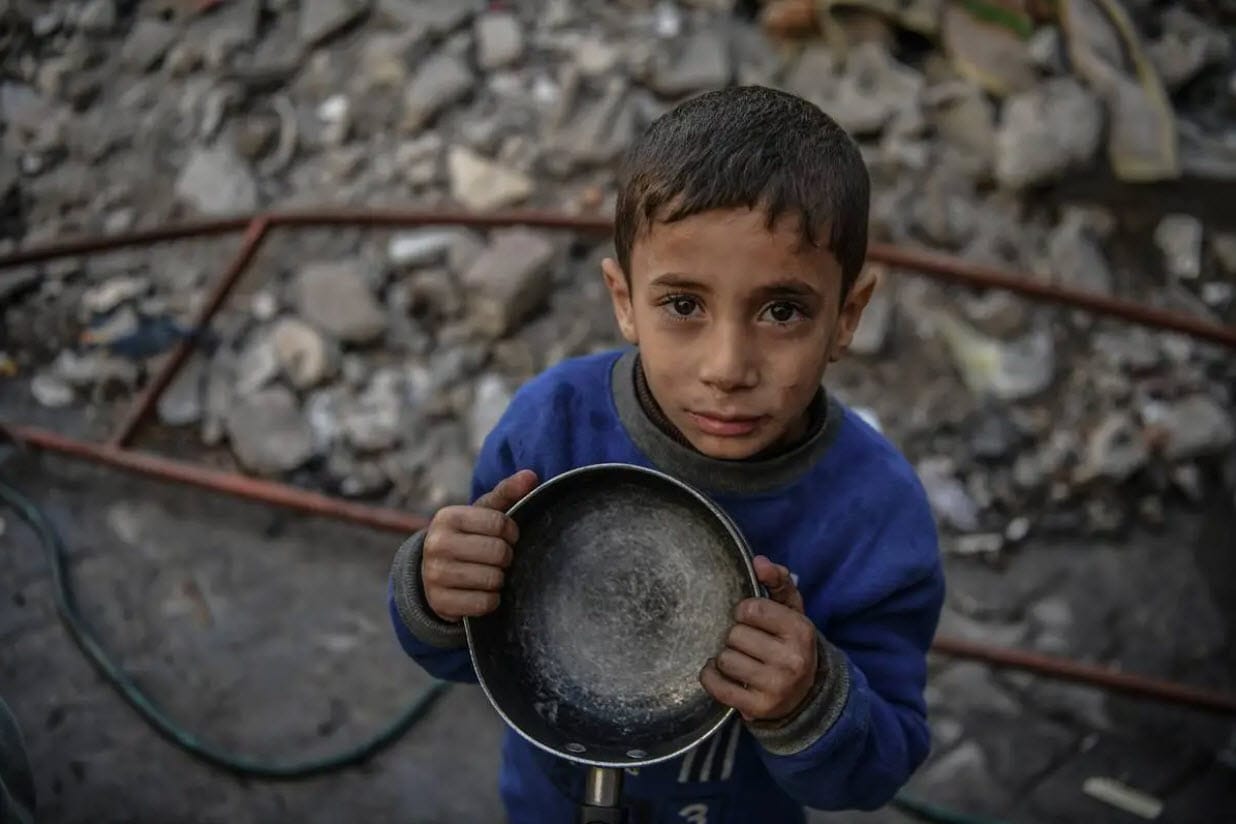
“Bread in those days was like gold.”
These were the words of a survivor of the siege of Leningrad, arguably one of the darkest chapters of World War II and a haunting reminder of the horrific toll exacted upon populations deliberately deprived of essential resources.
The use of mass starvation as a weapon of war echoes a historical barbarity that humanity should have long transcended. This egregious strategy, reminiscent of past sieges where starvation was deliberately employed as a tool of warfare, highlights the dire consequences of collective punishment on innocent civilians.
In Gaza, Israel has been deliberately blocking the delivery of water, food and other essentials to the besieged enclave’s 2.2 million people. While Gaza has been under Israeli siege since 2007, on 9 October 2023 Israeli Defense Minister Yoav Gallant declared a total blockade on Gaza as Israeli forces launched a full-scale war on the Palestinian territory.
In a recent report, Human Rights Watch described the Israeli government’s use of the collective starvation of civilians as a method of warfare in the besieged Gaza Strip as a war crime.
“International humanitarian law, or the laws of war, prohibits the starvation of civilians as a method of warfare,” the report says, citing the Rome Statute of the International Criminal Court established after the horrors of World War II.
Amidst this turmoil, Gaza’s local cuisine has emerged as a testament to resilience and perseverance in the face of adversity, with many utilizing locally available ingredients to persevere despite limited resources.
Flour has been the ultimate treasure as bread remains at the heart of survival in Gaza. Palestinian staples such as olive oil, za’atar and duqqa with their long shelf-life have also been a lifeline for many who have been able to store or acquire them.
However, as Israeli forces continue razing agricultural areas, destroying bakeries, food warehouses, flour mills as well as roads used to transport humanitarian aid, the reliance on locally sourced produce serves only as a partial buffer for a “lucky few” against the acute scarcity imposed by the siege and large-scale bombing campaign and ground invasion. Even preparing meals requires finding alternatives to cooking gas, like firewood or cardboard.
Over 80% of the besieged Strip’s population has been internally displaced and their ability to move and seek sustenance has been severely restricted.
According to a report by the Integrated Food Security Phase Classification (IPC), the proportion of households in Gaza affected by high levels of acute food insecurity is the largest ever recorded by the IPC initiative globally. According to the UN-backed report, more than half a million people, a quarter of Gaza’s population, are already at starvation levels.
“It is a situation where pretty much everybody in Gaza is hungry,” the World Food Program’s chief economist, Arif Husain, has said. In early December, the WFP reported that nine out of 10 people in Gaza cannot eat every day and skip meals for extended periods of time.
The deliberate restriction of essential supplies, including food, water and medical aid, accentuates the plight of a populace already grappling with the harrowing realities of a full-scale offensive. In just two months, more than 20,000 Palestinians have already been killed, 70% of them women and children.
The international community’s moral obligation is to condemn such egregious tactics and prioritize diplomatic efforts to not only impose a ceasefire, but to further end the siege on Gaza once military activities have ceased, ensure unimpeded access to humanitarian aid, and seek a lasting resolution that upholds the dignity and rights of civilians trapped in the occupied Palestinian territory.

Jehan Alfarra is a UK-based Palestinian writer and multimedia journalist covering Middle Eastern affairs and culture, and specializing in Palestinian political news and social issues. She is a contributing author to the book, “Gaza Writes Back.” This article appeared in MEMO and the Palestinian Information Center. Contact her on Twitter/X at @j_alfarra.





